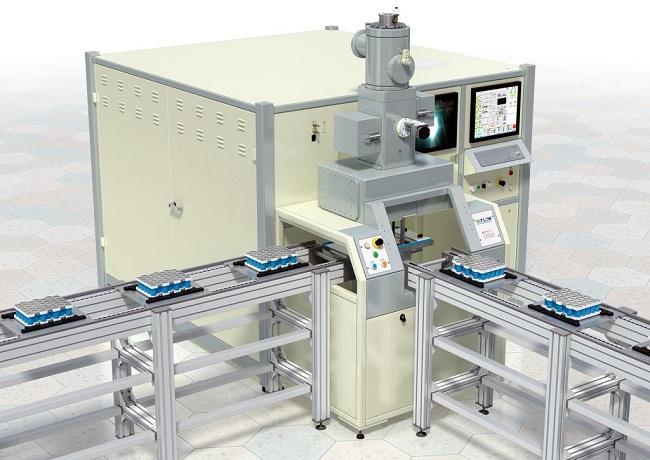Electrification
Vehicle electrification is the process of powering the vehicle with electricity by replacing components that operate on a conventional energy source with components that operate on electricity. This includes battery packs, motors, auxiliary systems, and charging systems.
Improvements are developing rapidly, with manufacturers already making advances in fast charging technology and battery exchange systems.
The size and mass of a battery pack often impact the design as more battery cells mean more mass for the vehicle. Increased mass requires more energy for the vehicle movement and affects manoeuvrability, such as handling, acceleration, and braking.
Widespread electrification of light and heavy-duty vehicles faces many economic and technological challenges. Many manufacturers sell electric cars, but there are still some barriers to adoption, including charging infrastructure and price. This is mainly due to the battery costs, but innovative welding solutions can help reduce these.
Electron beam welding is an optimal joining method for welding EV components.
Evflow: making stronger EV connections
Evflow is an electron beam welding machine for producing electric vehicle (EV) power train components. Electron beam welding is an extremely consistent process, creating strong, high-quality welds.
It is significantly faster for this application as the beam from the electron gun can be deflected electromagnetically with no moving parts, allowing it to move at speeds many times faster than a mechanical laser mirror.
It is significantly faster for this application as the beam from the electron gun can be deflected electromagnetically with no moving parts, allowing it to move at speeds many times faster than a mechanical laser mirror.
You can also change the focal point of the electron beam dynamically and very rapidly using electromagnetic focusing coils, which again have no moving parts. This allows the electron beam to process very wide areas without mechanically moving the welded part or the weld head.
The focal depth of the electron beam is typically longer than a laser; this combined with the lack of issues with reflectivity, makes electron beam welding a more reliable technology for mass production as it has wider tolerance for part misalignment.
Furthermore, as there is no reflectivity from an electron beam on metals such as copper (unlike laser), there is a greater heat intensity. As a result, less material is required in critical areas, such as hairpins, to absorb the heat.
As the vacuum chamber contains the welding process, there is less spatter, so the welds are extremely consistent.
The vacuum reduces the porosity in the weld creating a better electrical connection and increasing the efficiency of the electric vehicle.
Figures 1 and 2. Evflow electron beam welding machine.
Further information
Follow the links for more information:
- Evflow machine page
- Evflow datasheet
- Electron beam vs laser welding case study
- Electron beam welding in the automotive industry
- Electrification
- CVE exhibit at coil winding exhibition
- Strip welding machine for shunt resistors
- Electron beam welding of battery busbars
- CVE exhibit at The Battery Show Europe
We build machines to order, and options include custom and precision work handling, vacuum systems tailored to specific process needs and productivity, wire-feed, automatic joint finding, backscattered electron imaging, automatic focus, alignment and stigmator adjustment, high-speed data capture, beam probes and QA reporting. At the heart of the system is CVE’s fully integrated HMI – find out more about our advanced features and options.
If you are not sure which system is right for your application, please get in touch! Our machines are built and manufactured at our Cambridge Headquarters. With 60 years of process know-how in providing turn-key solutions, we can find the right solution for your application.


